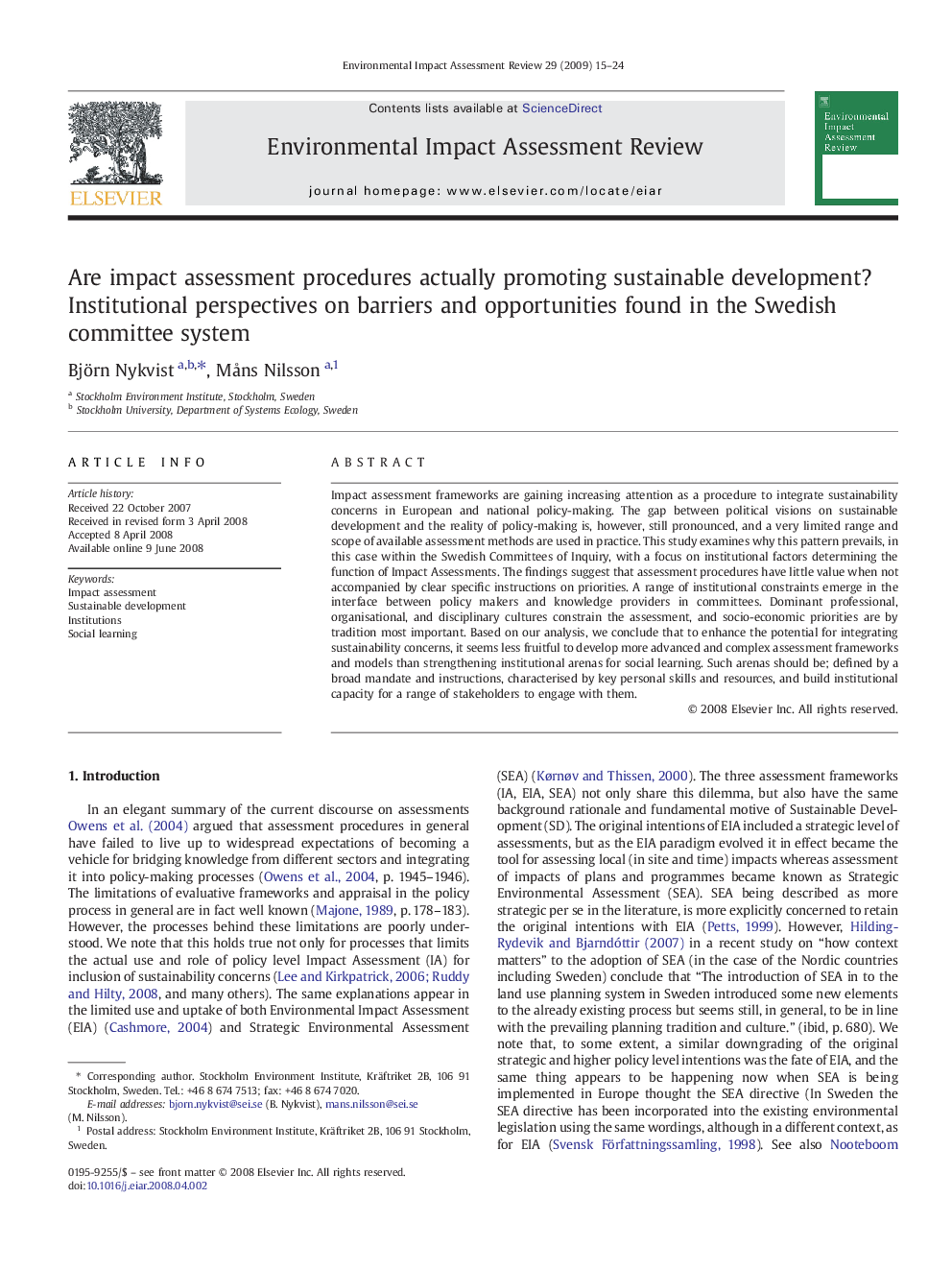| Article ID | Journal | Published Year | Pages | File Type |
|---|---|---|---|---|
| 1053187 | Environmental Impact Assessment Review | 2009 | 10 Pages |
Impact assessment frameworks are gaining increasing attention as a procedure to integrate sustainability concerns in European and national policy-making. The gap between political visions on sustainable development and the reality of policy-making is, however, still pronounced, and a very limited range and scope of available assessment methods are used in practice. This study examines why this pattern prevails, in this case within the Swedish Committees of Inquiry, with a focus on institutional factors determining the function of Impact Assessments. The findings suggest that assessment procedures have little value when not accompanied by clear specific instructions on priorities. A range of institutional constraints emerge in the interface between policy makers and knowledge providers in committees. Dominant professional, organisational, and disciplinary cultures constrain the assessment, and socio-economic priorities are by tradition most important. Based on our analysis, we conclude that to enhance the potential for integrating sustainability concerns, it seems less fruitful to develop more advanced and complex assessment frameworks and models than strengthening institutional arenas for social learning. Such arenas should be; defined by a broad mandate and instructions, characterised by key personal skills and resources, and build institutional capacity for a range of stakeholders to engage with them.
